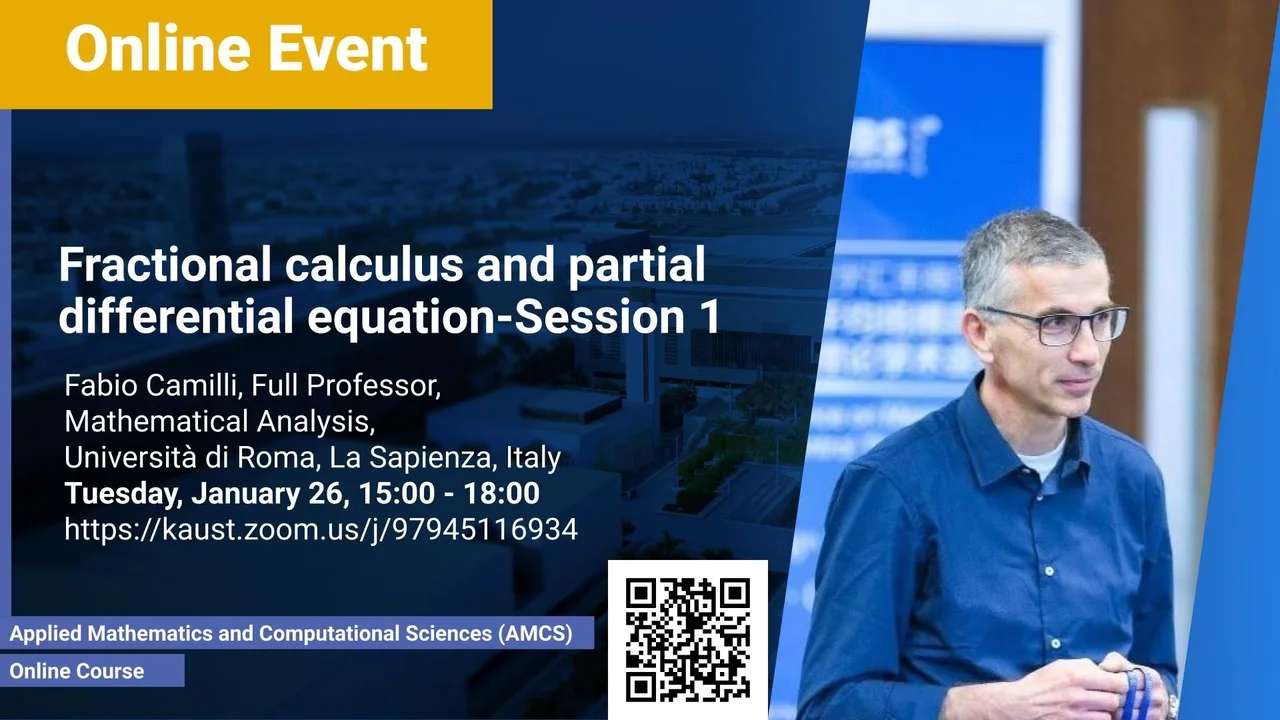
Fractional calculus and partial differential equation - Session 1
- Fabio Camilli, Full Professor of Mathematical Analysis, Università di Roma, La Sapienza, Italy
KAUST
In this course, we provide a brief introduction to fractional calculus with a view to applying it to the study of time fractional partial differential equations. We will introduce the definitions and main properties of fractional integrals and derivatives, including those of Riemann-Liouville, Caputo and Grunwald-Letnikov. The previous results will serve as the main modeling tools for partial differential equations related to a class of non-Markovian stochastic processes, called subdiffusions. Then we will examine some results regarding time-fractional linear partial differential equations and conclude with a brief introduction to control problems and Mean Field Games for subdiffusion processes.
Overview
Abstract
In this course, we provide a brief introduction to fractional calculus with a view to applying it to the study of time fractional partial differential equations. We will introduce the definitions and main properties of fractional integrals and derivatives, including those of Riemann-Liouville, Caputo and Grunwald-Letnikov. The previous results will serve as the main modeling tools for partial differential equations related to a class of non-Markovian stochastic processes, called subdiffusions. Then we will examine some results regarding time-fractional linear partial differential equations and conclude with a brief introduction to control problems and Mean Field Games for subdiffusion processes.
Brief Biography
- Laurea in Mathematics: U. di Roma "La Sapienza".
- Ph.D. in Mathematics: U. di Roma "La Sapienza".
Current position
- Full Professor of Mathematical Analysis, Università di Roma "La Sapienza".
- President of the Graduate School Board of the Ph.D. Course “Mathematical Models for Engineering, Electromagnetics and Nanosciences”.